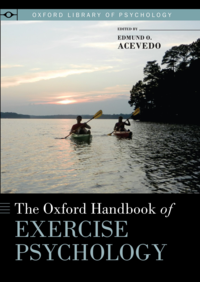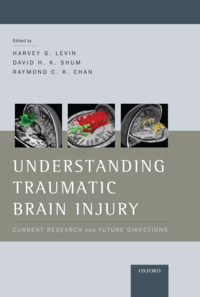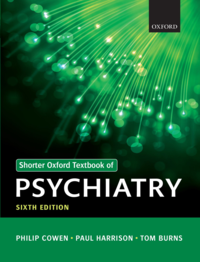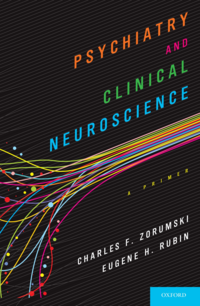Newly added to the STAT!Ref Collection are four new resources from Oxford University Press. As a reminder, All STAT!Ref content is full-text, cross-searchable and every single resource is available on the STAT!Ref Mobile App.
Awareness of the importance of exercise and physical activity to optimal physical and mental health has never been greater. It is widely acknowledged that physical inactivity is a leading cause of death, yet statistics show less than 50% of Americans participate in regular physical activity. This information highlights the public health challenge of increasing participation in physical activity to enhance physical health and to buoy the psychological benefits associated with physical activity.
The Oxford Handbook of Exercise and Psychology is an authoritative and comprehensive presentation of the breadth and depth of empirical contributions utilizing state-of-the-science theories and approaches in exercise psychology.
Chapters are authored by leading investigators across the globe who have made significant scientific contributions addressing the behavioral aspects of physical activity. Sections of the resource address the effects of physical activity on mental health; knowledge gathered utilizing psychobiological perspectives; behavioral factors that impact exercise motivation; scientific contributions addressing the physical activity benefits with special populations, including individuals with physical disabilities, older adults and cancer patients; and promising areas for additional investigation. Each chapter presents a summary of scientific advancements in the topic area as a foundation for future investigation.
- First comprehensive handbook covering all areas of exercise psychology
- Includes chapters on special populations (ill, the elderly, the disabled, etc.) and alternative exercise options
- For graduate students, researchers, and advanced undergraduate students interested in exercise motivation and the mental health benefits of physical activity
- Part of THE OXFORD LIBRARY OF PSYCHOLOGY series
The Oxford Handbook of Exercise and Psychology is written for readers interested in learning about many of the different facets that comprise the field of exercise psychology. College undergraduates, graduates, or educators in the field all may find this book useful to have in their home library. The authors are leaders in their respective fields.
Understanding Traumatic Brain Injury reports recent progress in research on traumatic brain injury (TBI) by leading investigators encompassing translational and clinical studies. The resource covers epidemiology, pathophysiology, brain imaging, cognition, behavioral sequelae, and clinical trials of innovative treatments, including new approaches to rehabilitation. The range of TBI mechanisms represented in this cutting-edge book includes closed head trauma and blast-related injury, and the spectrum of TBI severity. Chapters offer a developmental perspective, including the effects of TBI on cognitive development in children and outcome studies in adults. Contributors from various countries provide a global perspective on this worldwide health problem. The editors have synthesized the contents in a concluding chapter.
Researchers and clinicians will find this volume to be an informative, authoritative reference for current TBI research.
- Bridges translational and clinical research
- Examines both observational studies and clinical trials
- Discusses advances in brain imaging studies of a wide range of TBI severity and a range of populations
- Doody's Core Titles (DCT)
Widely recognized as the standard text for trainee psychiatrists, the Shorter Oxford Textbook of Psychiatry stands head and shoulders above the competition. Written by three of the most experienced clinicians and researchers in European psychiatry and neuroscience, the text has been honed over five editions and displays a fluency, authority and insight which is not only rarely found but makes the process of assimilating information as smooth and enjoyable as possible.
Introductory chapters focus on recognition of signs and symptoms, classification and diagnosis, psychiatric assessment, and aetiology. Further chapters cover both pharmacological and psychological treatments in detail. The resource gives equal prominence given to ICD and DSM classification – often with direct comparisons – giving the resource a universal appeal.
The sixth edition has been revised throughout, but in particular with respect to the fast moving fields of neuroscience and genetics. In addition, the resource now includes greater coverage of the field of social psychiatry – looking at how more community based services are being developed, and the effects these are having on the field of psychiatry.
The Shorter Oxford Textbook of Psychiatry remains the most up-to-date secondary level textbook of psychiatry available, with the new edition boasting a new modern design and greater use of summary boxes, tables, and lists than ever before. The extensive bibliography has been brought up-to-date and there are targeted reading lists for each chapter.
Key Points:
- The Shorter Oxford Textbook of Psychiatry is authored by three of the most experienced clinicians and researchers in European psychiatry and neuroscience, providing a coherence and uniformity and balance that is seldom achieved in edited volumes.
- Now in its sixth edition, the content has continually been refined over the years; resulting in a book that gives the reader exactly the material they need.
- Now includes more coverage of the field of social psychiatry – a field growing in importance and influence – with the expansion in community mental health services.
- The resource is strong on practical, evidence-based guidance as well as providing succinct analyses of clinical and scientific foundations.
- The Shorter Oxford Textbook of Psychiatry has always been an authored, rather than edited, book. This has numerous benefits for the reader – in particular a coherence and uniformity and balance that is seldom achieved in edited volumes.
- The 6th edition includes more coverage on social psychiatry (as a result of the presence of Tom Burns in the authorship).
- Includes more on psychiatric services and community mental health teams.
- Updated to include the latest developments in the fast moving fields of genetics and neuroscience, showing the influence these are having on the field of psychiatry.
The Shorter Oxford Textbook of Psychiatry fulfills all the study and revision needs of psychiatric trainees, but will also prove useful to medical students, GPs, qualified psychiatrists, and those in related fields who need to be kept informed with current psychiatric practice.
Research in neuroscience is revolutionizing how we think about psychiatric diagnosis and treatment. Psychiatric disorders reflect dysfunction of the human mind and involve changes in cognition, emotion, and motivation. Understanding how the neural networks that underlie these mental functions become dysfunctional holds great promise for devising innovative approaches to diagnosis and treatment. Scientific progress is being driven, in part, by advances in human functional neuroimaging, which is being used to characterize the activity of specific brain circuits at rest and during the performance of specific tasks.
Moreover, advances in clinical neuroscience are being coupled with expanding knowledge about genetics and cellular and synaptic neuroscience. Taken together, these advancements offer the hope of much more mechanism-based approaches to treatment in the future. Better understanding of neural circuits also can provide the basis for innovative psycho-therapeutic strategies that take advantage of brain plasticity for purposes of neurorehabilitation.
In Psychiatry and Clinical Neuroscience: A Primer, we examine recent developments in the field of network neuroscience and their potential impact on clinical psychiatry, including the way that psychiatrists are trained and interact with other medical specialties and mental health professionals.
Overview
- First resource to examine how advances in network neuroscience are likely to impact the diagnosis and treatment of psychiatric disorders
- Reflects an upcoming revolution in the field that has tremendous potential for improving the care of patients with these devastating illnesses
Bundle these resources with DeLisa's Physical Medicine & Rehabilitation, Concurrent Treatment of PTSD and Substance Use Disorders, Brain Injury Medicine, Stahl's Essential Psychopharmacology, Advanced Practice Psychiatric Nursing, Intelligent Clinician's Guide to the DSM-5, Kaplan & Sadock's Synopsis of Psychiatry and Brunnstrom's Clinical Kinesiology.
Have any questions about these new resources? Please call 800-901-5494 or fill out this form to speak with a STAT!Ref Team Member today.



